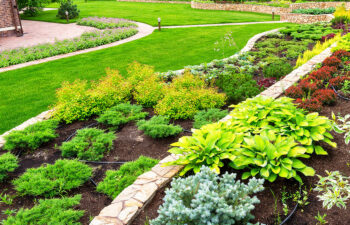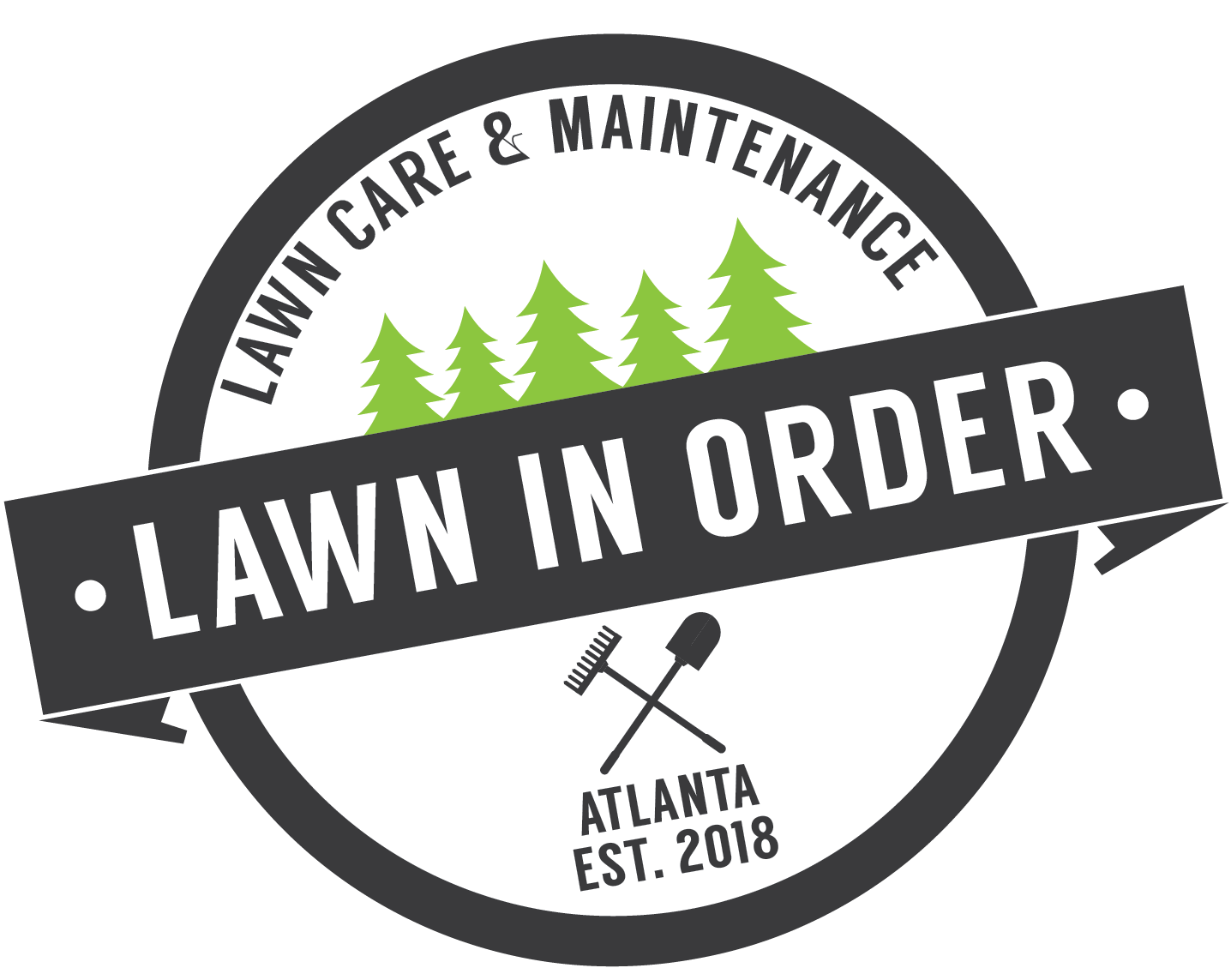
When families drive through your school’s campus for the first time, the landscaping creates an immediate impression that can influence their perception of your entire educational program. For schools throughout Atlanta, Decatur, and Brookhaven, maintaining pristine grounds year-round requires more than occasional mowing—it demands a strategic approach to seasonal maintenance that keeps your campus looking professional and welcoming in every season.
Educational facilities face unique landscaping challenges that differ significantly from residential or typical commercial properties. With hundreds or thousands of students, staff, and visitors traversing your grounds daily, plus the added complexities of varying academic schedules and budget constraints, your landscape maintenance needs require specialized attention and careful planning.
At Lawn in Order, we understand that school landscapes serve multiple purposes beyond aesthetics. They provide outdoor learning environments, recreational spaces, and community gathering areas that must remain safe, functional, and attractive throughout the changing Georgia seasons. Our experience serving schools across the greater Atlanta area has taught us that successful educational landscaping requires a proactive, season-specific approach.
Spring: Setting the Foundation for Success
Preparing for Peak Activity Season: Spring represents one of the most critical periods for school landscape maintenance, as this is when your grounds transition from winter dormancy to the high-activity period of late spring and early summer. The maintenance work completed during these crucial months sets the tone for how your campus will look and function throughout the busiest part of the academic year.
Spring cleanup goes far beyond simply removing winter debris. For Atlanta area schools, this season requires comprehensive assessment and restoration of landscape beds, turf areas, and hardscape features that may have suffered damage during winter months. Dead plant material must be removed, soil compaction addressed, and drainage issues identified before they become major problems during Georgia’s intense summer heat.
Pre-emergent herbicide applications during early spring are essential for preventing the aggressive weed growth that can quickly overwhelm school landscapes during warmer months. Timing these applications correctly requires understanding of local soil temperatures and weather patterns specific to the Atlanta region. Professional landscapers know that missing this critical window can result in weed problems that persist throughout the growing season.
Establishing Healthy Growth Patterns: Spring fertilization programs for school landscapes must balance promoting healthy, attractive growth while avoiding excessive vigor that requires frequent maintenance during the busy end-of-school period. Cool-season grasses common in the Atlanta area need specific nutrient programs to transition successfully into summer dormancy, while warm-season areas require different timing and formulations.
Irrigation system startup and calibration during spring ensures efficient water usage throughout the summer months when Georgia’s heat and humidity create challenging growing conditions. Schools cannot afford irrigation failures during summer programs or when preparing for fall reopening, making spring system maintenance non-negotiable.
Summer: Maintaining Performance Under Pressure
Managing High-Traffic Impact: Summer months present unique challenges for school landscapes, as many facilities host summer programs, camps, sports activities, and facility maintenance projects. Your landscape must withstand increased foot traffic, equipment movement, and irregular watering schedules while maintaining its professional appearance for ongoing community use.
Heat stress management becomes critical during Atlanta’s intense summer months, when temperatures regularly exceed 90 degrees and humidity creates additional stress on landscape plants. Professional maintenance programs adjust mowing heights, modify fertilizer applications, and implement targeted irrigation strategies to help landscapes survive these challenging conditions.
Pest and disease pressure typically peaks during summer months, requiring vigilant monitoring and proactive treatment programs. Schools cannot afford landscape failures during summer programs or before fall reopening, making professional pest management essential for maintaining healthy, attractive grounds.
Preparation for Fall Reopening: Late summer landscape preparation sets the stage for successful fall reopening. This includes renovation of high-traffic areas, replacement of failed plant materials, and implementation of improvement projects that take advantage of lighter campus usage during summer months.
Summer is also the ideal time for major landscape renovations or installations that would be disruptive during the academic year. Professional landscaping teams can complete significant projects while minimizing impact on educational activities.
Fall: Ensuring Longevity and Visual Appeal
Creating Lasting Impressions: Fall represents a critical period for school landscapes, as this is when prospective families often visit campuses and when your grounds must look their absolute best for the new academic year. The landscape maintenance performed during fall months directly impacts how your school is perceived by the community during this high-visibility period.
Fall cleanup extends beyond simple leaf removal, encompassing comprehensive preparation for winter months ahead. In the Atlanta area, this includes protecting sensitive plant materials, addressing drainage concerns before winter weather arrives, and completing maintenance tasks that cannot be performed during colder months.
Overseeding programs for cool-season grass areas must be timed precisely to establish new growth before winter temperatures arrive. Professional landscapers understand the narrow window for successful fall seeding in Georgia’s climate and can ensure optimal results.
Winter Preparation and Protection: Fall maintenance includes protecting valuable landscape investments from potential winter damage. This might involve wrapping sensitive plants, adjusting irrigation systems to prevent freeze damage, and implementing erosion control measures before winter storms arrive.
Soil improvement programs implemented during fall take advantage of favorable growing conditions for root development while preparing turf and plant materials for winter stress. Professional soil testing and amendment programs ensure optimal growing conditions for the following spring.
Winter: Planning and Protecting Your Investment
Strategic Planning and Assessment: While landscape activity naturally slows during winter months, this period provides valuable opportunities for comprehensive assessment, planning, and preparation for the coming year. Professional landscaping teams use winter months to evaluate the previous year’s performance, identify areas for improvement, and develop strategies for the upcoming growing season.
Winter is ideal for major planning initiatives, including landscape master plan updates, budget development for the coming year, and coordination with facility improvement projects that might impact landscape areas. This planning time ensures that spring maintenance can begin immediately when weather conditions permit.
Protecting Against Winter Damage: Georgia’s unpredictable winter weather can cause significant landscape damage if proper precautions aren’t taken. Professional winter maintenance includes monitoring for ice damage, preventing salt damage near walkways and parking areas, and protecting irrigation systems from freeze damage.
Winter maintenance also includes ongoing debris removal, especially important for schools that experience heavy use throughout winter months for indoor activities and events. Maintaining clean, safe exteriors contributes to overall campus safety and professional appearance.
The Economic Benefits of Seasonal Maintenance
Cost-Effective Long-Term Strategy: Implementing comprehensive seasonal maintenance schedules represents a significant cost savings compared to reactive maintenance approaches. By addressing issues proactively and maintaining landscapes according to seasonal needs, schools avoid expensive emergency repairs and replacement costs that result from neglected maintenance.
Professional seasonal maintenance extends the lifespan of landscape investments, protecting the substantial capital investments schools have made in their grounds. Proper care of established landscape materials costs far less than replacement, making seasonal maintenance programs excellent long-term budget strategies.
Maximizing Educational Resources: Well-maintained landscapes provide valuable outdoor educational opportunities, from science classes studying plant growth to environmental programs exploring sustainable landscaping practices. Seasonal maintenance ensures these outdoor classrooms remain available and attractive throughout the academic year.
Professional maintenance also reduces liability concerns associated with poorly maintained landscapes, including trip hazards from uneven surfaces, pest problems, and safety issues from overgrown vegetation or failing plant materials.
Choosing Professional Seasonal Maintenance
Expertise and Reliability: School administrators have enough responsibilities without worrying about landscape maintenance timing and techniques. Professional landscaping services bring specialized knowledge of local growing conditions, seasonal requirements, and efficient maintenance practices that ensure optimal results throughout the year.
Professional teams also provide consistency and reliability that school facilities require. Unlike depending on seasonal staff or volunteers, professional services ensure critical maintenance tasks are completed on schedule regardless of other campus demands.
Comprehensive Service Coordination: Seasonal maintenance programs integrate all aspects of landscape care, from routine mowing and trimming to specialized treatments and improvement projects. This comprehensive approach ensures nothing falls through the cracks and that all landscape elements work together to create attractive, functional outdoor spaces.
Professional services also coordinate with school schedules, ensuring that maintenance activities complement rather than interfere with educational activities and special events.
Maintain Your School’s Excellence Year-Round
Your school’s landscape represents a significant investment in community appeal, educational environment, and property value. Protecting this investment requires more than good intentions—it demands professional expertise and strategic seasonal planning that addresses the unique challenges of educational facility maintenance.
Lawn in Order’s experience serving schools throughout the Atlanta, Decatur, and Brookhaven areas has taught us that successful school landscapes require specialized knowledge, reliable service, and flexible scheduling that works with your academic calendar. Our seasonal maintenance programs ensure your campus looks professional and welcoming throughout the year while providing the outdoor spaces your students and community deserve. Contact us today to discuss how a comprehensive seasonal maintenance program can enhance your school’s landscape and protect your investment for years to come.

